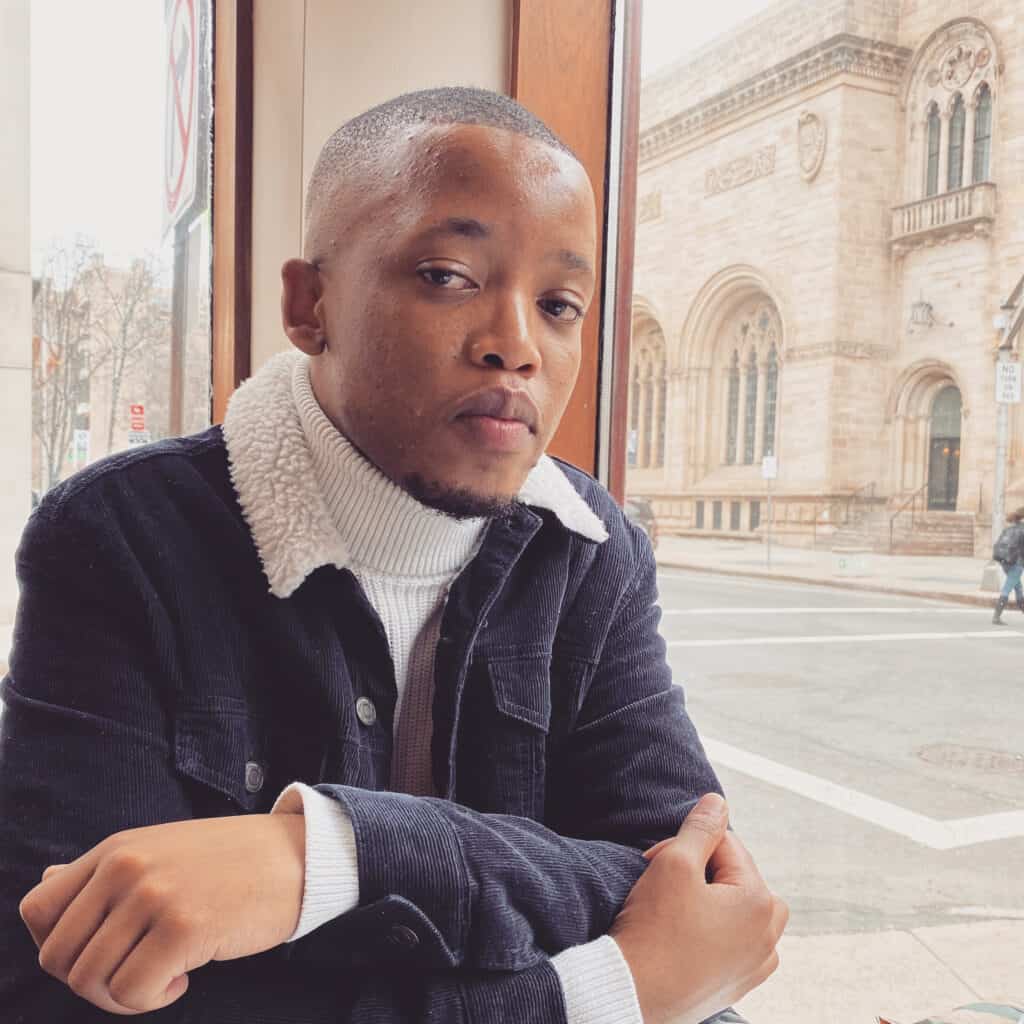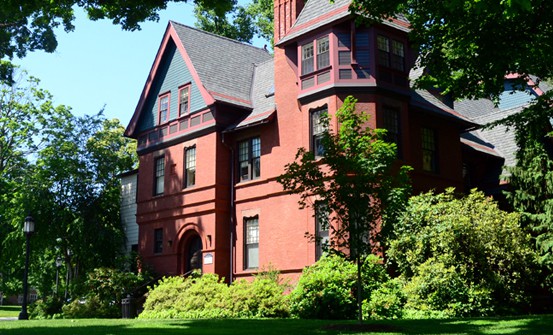Kabelo Motsoeneng ’20 Completes Debut Novel as Senior Thesis
Writing a debut novel is a noteworthy accomplishment for any writer, but it is especially impressive when the writer is a student who is completing his undergraduate degree at the same time.
Kabelo Motsoeneng ’20, an English and human rights double major at Trinity College, has spent 18 months working on his first full-length novel, What We Inherit, and is pursuing publication. “I worked on my first draft while in a senior workshop during my junior year,” Motsoeneng said. “The writing process has been thrilling and consuming. I shaped my last two years here at Trinity to ensure that I could have time to work on it and find readers, while moving from a draft to completing the manuscript.” For his senior spring semester, Motsoeneng integrated the final stretch of revisions for his novel into his semester-long senior thesis project under the guidance of his mentor, Assistant Professor of English Ethan Rutherford.
What We Inherit is focused on a narrative that covers loss and queer identity, Motsoeneng said, and is placed within the context of South Africa. The novel follows the experiences of a 20-something-year-old South African man who is in his third year of university and struggles to pay for his tuition. Later, he must choose between paying for school or paying medical bills for his father, who becomes critically ill. As the main character attempts to exercise control over the trajectory of his life, Motsoeneng explores the theme of loss across multiple vectors throughout the novel.

Motsoeneng found inspiration for the novel from events in his life—including growing up in Johannesburg, South Africa, and the loss of his father—but said he would not describe the novel as autobiographical. “Other people have experienced similar loss or loss that is far worse than mine; my own loss is that my father died. But this kid [the protagonist] has no mother. This kid has no house. This kid has no father. This kid has no degrees. So he’s really at a loss. I wanted to dramatize whatever I was going through and to be able to access my emotional truth, but to give it a different body,” Motsoeneng said.
On Rutherford’s advice, Motsoeneng decided that revising the novel would be an academically and personally beneficial way to accomplish his senior thesis. Motsoeneng met Rutherford through a senior-level English class he took during his first year, “Shaping the World,” for which Motsoeneng was later a teaching assistant.

Even before Motsoeneng started the senior thesis, Rutherford said that he had already completed a great deal of the novel’s content. The overall plan of Motsoeneng’s thesis, Rutherford said, was to revise the work and make it the best book that it could be. “My role as a thesis advisor has essentially been to say, ‘This part is great, leave this part alone, pay attention to that place, do this stuff over here.’ He gives me incredible work and he didn’t need encouragement to stay at the desk,” said Rutherford. “One of the things that actually dovetails really nicely with the stuff we’re doing in ‘Shaping the World’ is that we spend most of that class talking about revision, different revision strategies, what it means to see the work again, and what radical revision means.”
Motsoeneng’s influences include the writers Chimamanda Ngozi Adichie, Toni Morrison, K. Sello Duiker, and Garth Greenwell. He said he appreciates their unique sentence structure and cadence, which has led him to “becoming interested in not just the project of the novel being continued, but the novel piece by piece.”
According to Rutherford, Motsoeneng’s admiration for different writing styles helped to encourage a mentor-mentee relationship that went beyond a typical teacher-student dynamic. Rutherford said, “It felt more like, ‘Here are some books that we love. Let’s talk about them as writers and as readers who are really interested in kind of pulling works apart to see what makes them feel great.’”
To anyone who hopes to become a writer, Motsoeneng advised to write for yourself first, rather than having publishing as your only goal. “Once publishing becomes part of how you think of yourself as a writer, I think you will compromise a lot. And I don’t think I wanted to learn how to compromise in the very early stages of me becoming a serious writer. I wanted to learn how to live for myself. I wanted to learn how to find pleasure in whatever it was that I was writing.”
To hear an interview with Motsoeneng conducted by Trinity’s Office of International Students and Scholars, click here.
